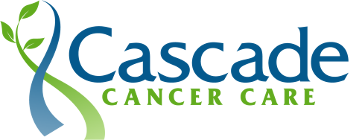Why Don’t We Get More Cancer?
A cancer diagnosis is shocking and devastating. Many of my patients reasonably ask why this illness happened to them, especially after years of excellent health and good self-care. As a physician, I wish that no one got cancer. Sadly, 1 in 2 men and 1 in 3 women will get cancer in their lifetime. As a scientist, though, I’m actually surprised that we don’t all get MORE cancer. Sounds strange, right? Here’s the thing: if we take the dominant theory of cancer literally, then we should all have cancer. We’re all exposed...
read moreWhat Feeds Cancer: A Closer Look at Fats and the Ketogenic Diet
Many of my patients ask questions about cancer as a metabolic disease. Perhaps you’ve read that “sugar feeds cancer”, or have learned of the Warburg effect. In the next few newsletters, I’ll be digging deeper into the complex story of cancer as a metabolic disease. Some of my colleagues recommend a ketogenic diet for cancer patients. They reason that if cancer cells eat sugar, then feeding protein and fat might be a better choice. The ketogenic diet is mostly fat with moderate protein and very little sugar and starch....
read moreA Breast That May Not Need Surgery?
It seems perfect to celebrate Breast Cancer Awareness Month with news about a breast condition that may benefit from more awareness — and less treatment. The time may have come to start treating some DCIS like early prostate cancer — watching and waiting instead of treating. Some women with low grade DCIS and low risk tumor genomes may not need surgery. A 23-year retrospective study of 57,222 women found that surgery on low grade DCIS did not save lives from breast cancer. Instead, these women could be managed with watchful...
read moreTarget BRCA & Cancer-Causing Genes
While the commonness of the BRCA gene has stayed stable for generations, the number of BRCA-caused cancers continues to rise. Why? Because diet and lifestyle guide the expression of the BRCA gene. What does the BRCA gene do? BRCA is an “off switch” for damaged cells, which scientists call a tumor suppressor gene. Our bodies make cancer cells all the time. Tumor suppressor genes tag these damaged cells for destruction before a cell can multiply and become a cancer. I’m a man. Why should I care? BRCA is one of many tumor...
read moreAsk the Doctor: Soy And Breast Cancer
Q: I’m a 3 year survivor of estrogen sensitive breast cancer. I read conflicting news about soy. Should I eat soy or avoid it? A: When we review all the large nutritional studies together, the conclusion is clear. Soy does not increase the risk of recurrence for any type of breast cancer. Breast cancer survivors do not need to avoid soy. For an excellent review of the science, read this article by naturopathic oncologist Dr. Tina Kaczor. So, the choice of whether or not to eat soy is up to you. If you do eat soy, choose organic to...
read moreCopper, Zinc, And Tumor Blood Vessels
Copper… Gorgeous on roofs and in sculpture. And I love skiing at Denver’s Copper Mountain. But copper in my cold water pipes or cookware? No thanks! For tumors to grow, they need blood and the oxygen that it brings. Avastin targets tumor blood vessel development, but the blood vessels then come back as soon as the Avastin is stopped. So, what else targets tumor blood vessels? Copper and Zinc To grow new blood vessels, tumor cells need specific growth factors. To activate, these growth factors have to bind to copper. Copper is...
read moreEuropean Mistletoe: Season’s Greetings and Healings to You!
Mistletoe is more than Christmas and kisses. The purified extract is a powerful immune boosting therapy used by 60% of German cancer patients. Clinical trials show that mistletoe: Lengthens lifespan 77% in people with pancreatic cancer Improves quality of life and immune function in people with stomach cancer Improves quality of life in breast cancer survivors Slows progression of sarcoma, melanoma, and colon cancer. Is active against ovarian cancer May increase survival in metastatic cervical cancer Extends survival in stage II and stage...
read moreMedicinal Mushrooms: Here’s to Life!
Here’s To Life! In addition to being delicious, some medicinal mushrooms are helping cancer survivors to live longer. The gorgeous photo above is of turkey tail mushroom, also called Coriolus versicolor. Coriolus grows wild in the Cascade mountains. (Pick carefully though. Some look-alikes are poisonous!). Living Well, Living Longer The Japanese have developed a hot water extract of Coriolus as a cancer treatment drug. In clinical trials, Coriolus lengthens life in people with breast, colon, and stomach cancers. For every 11 cancer...
read moreLow Dose Naltrexone: Case Report of Complete Cancer Remission
Dr. Akbar Khan’s case report of a 4 year complete remission of an advanced head and neck cancer with a combination of low dose naltrexone and vitamin D. LDN Adenoid Cystic Complete Remission
read moreBeauty AND Health: 5 Cancer Causing Personal Care Products To Avoid
Looking great shouldn’t endanger your health. Yet, cosmetic companies can (and do!) put almost any ingredient in their products. Our shampoos. sunscreens, and cosmetics often contain dangerous cancer-causing ingredients. And, research shows that what goes on the skin gets into the blood. These 5 common ingredients disrupt the functions of estrogen, testosterone, and thyroid hormone. This increase the risk of breast, prostate, colon, ovarian, and thyroid cancer. Avoid these 5 toxic ingredients: Parabens: These are added to lotions,...
read more
 541-323-3833
541-323-3833